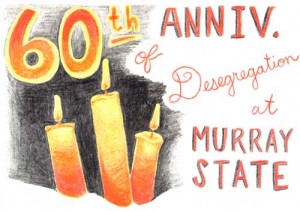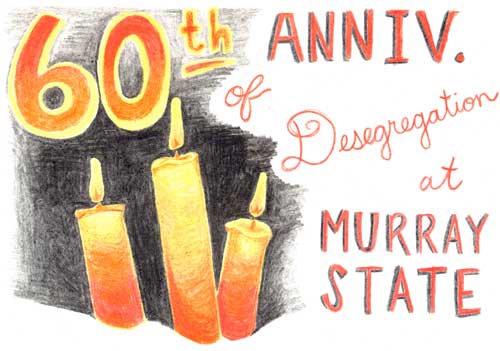The staff editorial is the majority opinion of The Murray State News Editorial Board.

Every third Monday in January is a holiday.
It is a day that is set aside for our nation. It is a marking of a moment. It is a celebration. It is a day of remembrance.
Every third Monday in January, we set down our notebooks and we turn off the computers because a man named Martin Luther King Jr. died for the progress of our nation.
With each passing moment during this day, we remember where we, as a nation, came from. We read his outcries against severe injustice, but those cries are not heard without the reminder that we still have a long way to go.
According to a New York Times/CBS News poll conducted in July 2015, titled “A Growing Divide on Race,” race relations in our country have not only declined, but “deteriorated.”
When more than 1,000 people were asked, “Would you say there’s been real progress getting rid of racial discrimination?” 71 percent of all respondents said there has been progress.
However, 75 percent of white respondents said there has been progress while only 56 percent of black respondents said there has been progress.
In other words, almost half of black respondents asked said they feel there has been no progression toward equality.
Additionally, authors of the poll state that “Blacks are eight times as likely as whites to say they have been stopped by the police because of their race, and almost two-thirds of black men report having been racially profiled by the police.”
This is unacceptable and we must change this.
As a university, we have made attempts to mend racial divide but there is always more we can do and will do.
In 2011, the Board of Regents approved a 52-page Diversity Plan, with measures that were to be implemented from then until 2015.
Since controversial and racist comments were posted anonymously on Yik Yak at the beginning of the 2014-15 school year, students, faculty and staff joined together and held the event, “Eracism,” to talk about race and racism on our campus.
Just this week, with the celebration of Martin Luther King Jr., the annual traditions of a day of service and the candlelight vigil were held.
Next month, King’s oldest son, Martin Luther King III, will speak to the university community for the Presidential Lecture Series on Feb. 8.
King’s lecture is regarded as the capstone to the 60th anniversary of the desegregation of Murray State.
Mary Ford Holland stepped foot onto this campus in the summer of 1955 because she desired a better life for herself, and she did so regardless of the color of her skin or what society told her was unacceptable.
She embodies the mission King desired and spoke for, and her enrollment came right as he was beginning work for the civil rights movement in the mid-1950s.
Whether discussions are spurred by King’s lecture or whether they are a continuation of conversations that already exist, we cannot let these conversations recede.
As scholars and students, we know and can acknowledge that the progression of society depends on reaching beyond our comfort zones to make a change because our futures rely upon it.
Every third Monday in January is a holiday, but it is so much more than that.
Martin Luther King Jr., said, “Our lives begin to end the day we become silent about things that matter.”
Do not become silent.




























































































